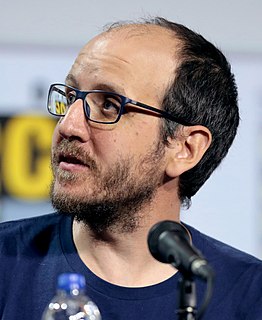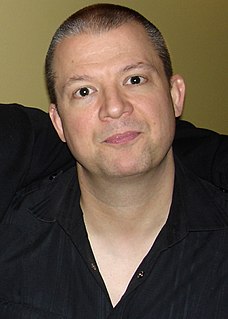A Quote by Travis Beacham
A lot of screenwriters write certain characters, certain parts, with actors in mind. I don't really tend to do that. I describe them as specifically as I can, but I don't really picture anyone in particular.
Quote Topics
Related Quotes
Normally, filmmakers would just write a script and cast people to act as certain characters in the story. But in my way of doing things, I have the actors in my mind already, so I'm trying to borrow something that's unique to them. The characters have a very natural connection to the actors themselves.
To a certain extent everybody has a certain sort of way of being a persona that they learn how to be when they're really little. They figure out that if they're really funny, or really pretty, or if they work really, really hard or are really smart, then that's what's going to get them by. That is what is going to make people like them.
I find often in Hollywood there are many people who play themselves really beautifully. And certain parts are not that dissimilar from who you are as a person. And there are other parts where you would like to think that you have nothing in common with those characters, but you probably do have more than you think.
Every mind has its particular standard of good and bad, and of right and wrong. This standard is made by what one has experienced through life, by what one has seen or heard; it also depends upon one's belief in a certain religion, one's birth in a certain nation and origin in a certain race. But what can really be called good or bad, right or wrong, is what comforts the mind and what causes it discomfort. It is not true, although it appears so, that it is discomfort that causes wrongdoing. In reality, it is wrongdoing which causes discomfort, and it is right-doing which gives comfort.






































